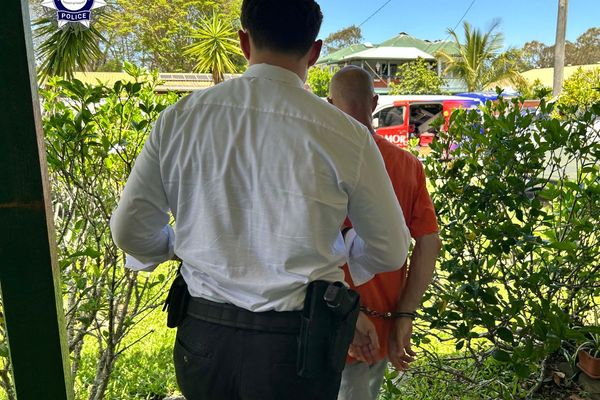
Three large quarry proposals north of Raymond Terrace have raised concerns about increased truck traffic, pollution and environmental degradation.
Building industry supplier Boral has lodged a scoping report with the NSW Department of Planning and Environment to extend the life of Seaham Quarry by 30 years to 2057 and almost double its maximum output to 2 million tonnes a year.
The proposal includes expanding the Italia Road quarry site from 68 to 99 hectares, increasing its operating times to 24 hours every day and increasing blasting from once a month to once a week.
On the northern side of Italia Road, Australian Resource Development Group published an environmental impact statement on Thursday for its Stone Ridge Quarry, which would produce up to 1.5 million tonnes of hard rock for 30 years.
The EIS says the quarry would occupy 139 hectares of Wallaroo State Forest and generate 334 truck movements a day.
The two quarries are close to the revived Eagleton mine project, which would produce up to 600,000 tonnes of rock material a year and 170 truck movements a day if approved.
Many trucks from the existing Boral quarry turn south from Italia Road onto the Pacific Highway across northbound traffic, but the new proposals involve trucks turning north 11 kilometres up the highway to Karuah before turning around to travel south back towards Newcastle.
Documentation for the three proposals suggest they would generate a total of almost 1000 truck movements a day, though Brandy Hill & Seaham Action Group spokesperson Margarete Ritchie regarded this figure as conservative.
A Boral spokesperson said 800 to 900 trucks a week entered the existing quarry.
"A traffic study and modelling will be undertaken as part of the environmental impact assessment of the project," the spokesperson said.
"Our proposed Seaham Quarry Project is in the early stages of technical studies to prepare an environmental and social impact assessment.
"We will continue to work collaboratively with the community and all levels of government throughout this process."
Ms Ritchie said the cumulative impact of the three quarries would be catastrophic for nearby residents and others living further away.
She said the developments would choke Italia Road and the Pacific Highway with trucks, spread more potentially harmful dust and generate "horrendous" noise.
"It doesn't matter which way you look, the community will be affected," she said.
"You'll have the cumulative effect of three quarries that will have 4 million tonnes coming out.
"You have all these trucks that accumulate on that highway. There is no bypass built yet, so for many years it will be wall-to-wall trucks. It's just unsustainable."
Ms Ritchie is on the community consultative committee for the nearby Brandy Hill quarry, which won expansion approval from the Independent Planning Commission in 2020.
She said the noise of crushers and blasting from the proposed quarries would carry for kilometres, including to the site of the proposed 3500-home Kings Hill housing estate to the south.
"They will hear the rumbling of the crushers. They are pretty phenomenal in their noise. We're talking great big rocks being dumped into machinery.
"I know it's a few kilometres away, but it's not as if noise suddenly stops at a particular place.
"We had someone just above the Hanson quarry who had a nervous breakdown over that because the constant noise of the banging of the machinery.
"We've had people along Brandy Hill Drive saying the noise of the crushers keeps them awake. They can't do it 24/7. Boral is dreaming if they think that that is acceptable."
ARDG says its Stone Ridge investigations have confirmed a "very large" hard rock resource suited to producing a broad range of construction products.
"It represents a rare opportunity to access a very large greenfield hard rock quarry resource, particularly given the significant geological, environmental and planning constraints that apply in the region," the company says on its website.
ARDG says the proposed quarry's proximity to Newcastle, the Central Coast and "the Sydney market if required" would allow it to "significantly ameliorate medium to long-term supply-side pressure of quarry materials" and generate state government royalties.
Boral's scoping report says the existing quarry, an "essential supplier" in the Hunter and Central Coast, will exhaust its approved hard rock reserves within a few years.
Lawyer Anna Kerr, whose family owns a property near the existing Boral quarry, said the "cumulative effect of so much quarrying will make the area increasingly uninhabitable for humans as well".
Another Italia Road resident, Charlee Connor, said she could not "see one single benefit to these quarries going ahead on our road".
"It's pretty horrifying if you drive down here and you come across a quarry truck," she said.
"You have to pull off the road. The road's just not wide enough. It's crazy dangerous. I'm just surprised there hasn't been more fatalities."
About 50 residents attended a meeting on Wednesday at Woodville, where Ms Ritchie said she detected the "same anxiety and depression" in Italia Road residents as exhibited by people living near Brandy Hill quarry.
"People are very, very concerned for their own health. Here at Brandy Hill we've had problems with dust pollution into water tanks," she said.
"That dust has proven to be harmful. It was analysed by one of the residents and it had silica dust in it."
The Stone Ridge EIS predicts "no adverse air quality impacts at locations outside the project area with respect to crystalline silica".
Ms Ritchie said development had "absolutely trashed wildlife corridors" in the Hunter.
The Stone Ridge EIS says the project will have "residual direct impacts" on threatened koalas, squirrel gliders and the brush-tailed phascogale.
DPE is assessing the quarry projects as fast-tracked state significant developments.







